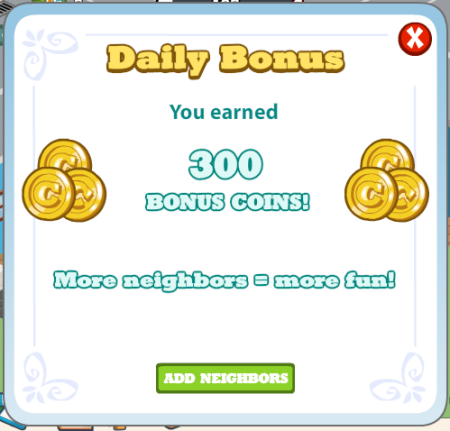It’s hard to believe it’s been only just over 9 months from the launch of Applifier on April 25th 2010. I haven’t blogged at all during that time as I simply haven’t had the time or energy for it.
Mark Suster recently wrote an excellent article on the rollercoaster ride of entrepreneurship. I’ve been through that rollercoaster ride amped up with a few jet engines strapped to my back in those nine months. When we launched Applifier together with fellow social game publishers, I had no idea that the idea would grow to became a successful service reaching over tens of millions monthly active users. I was only trying to survive.
Everyplay (as our company was known then) was at the brink of death with a only a few months of cashflow left. Out of that desperation came the idea to try cross-promotion across small and medium sized publishers. It was the opportune time and we executed. But it would have not worked without the trust and support of our launch members. I’m incredibly thankful for their support, guidance and help.
Thank you Nabeel, Daniel, Raph, Jason, Keith, James, Stan, Moo, Luke, Rex, Magnus and Johan.
Applifier was founded to work for publishers. It is a privilege to work for so many great companies and see their games succeed.
Come mid-summer 2010 we were running on fumes. Money was nearly gone. Applifier was taking off like a rocket. Kamu Town, our game, languished. I had an obvious, but a very difficult decision to make. The vision I had crafted and promised to our team had not realized. We weren’t going to make it with games. The hardest day arrived when I had to face the facts, stop all game development and layoff good friends from the company. We ended up drinking and being merry the same night and parted ways with a ton of respect for everybody. I didn’t stop working for my former employees until I found them new employment at great companies like Rovio and Digital Chocolate. Personally one of the coolest things that Applifier has made possible is that I was able recruit back one of the guys I had had to lay off. Makes me smile.
Thank you Matti, Jussi and Pekka for believing in my vision and going the extra mile. It was a privilege to work on Kamu Town with you.
At the same time Applifier was growing explosively, but were a total nobody. An unknown, obscure Finnish startup trying to raise money in the Valley and not even knowing who to talk to. I had some ideas of investors I should try and reach, but I didn’t know them. Fortunately many great friends believed in us and put their reputation on the line to introduce us to the right people.
Thank you Paul, Wili, Jyri, Brett, Frank, Pekka, Josh, Taneli, Jukka.
Those warm intros opened the doors and our traction kept the doors open. We were up to around 30M MAU in reach in just a few months, but at the same also nearly out of cash. Applifier was delivering great results to its publishers, so our graphs continued to go up and to the right. If anything, that moves things forward in a funding round. It sounds cliché, but it is absolutely true.
The saying is that a Valley investor won’t invest into a company to whose office he can’t drive to. To my surprise I found that to be untrue. We pitched nearly 40 seed investors and only one outright turned us down because we aren’t a Delaware corporation. Everybody else was ok as long as the legal & tax impact of investing into Finland were known and the CEO would move over to the valley. (yes, that’s were I’m headed)
Traction was definitely the thing that helped investor to get over the “Where in the world is Finland?” issue. The cross-promo model worked and our publishers got great results from using Applifier. The technology worked extremely well too, but only because Matti and Jalmari, our technical co-founders, totally outdelivered re-writing Applifier’s systems several times over and working days and nights to keep up with the amazing load.
Thank you Matti and Jalmari. I couldn’t have found more competent and outstanding technical co-founders.
We were fortunate to meet several great investors, many of whom went out of their way to help us. The decision who to bring on board was not a trivial one. We were “getting married”, but unlike a marriage, there would be no option for a divorce. In the end our decision came down to choosing investors who were entrepreneurs themselves and whose own investors were entrepreneurs.
It’s great to have MHS Capital, PROfounders and Lifeline on board. These seed funds’ own investors are all successful entrepreneurs. It’s been an absolute privilege for me to talk with Ali Partovi (who backs MHS Capital), one of the founders of Link Exchange, who were the true pioneers of the cross-promotion model in the pre-Google days. So much in common with the businesses even if they are separated by over 15 years. Jyri, David and Lars are all successful entrepreneurs with huge domain expertise. Mark at MHS Capital, Sean & Rogan at PROfounders, Petteri, Timo, Jarkko and Ilkka at Lifeline all think and act like entrepreneurs.
Tekes, the Finnish funding agency for technology and innovation, has supported our R&D efforts since day 1. We are thrilled to join their Young Innovative Companies and show that fast growth, international startups can be created in Finland just as well as anywhere in the world.
Thank you Mark, Sean, Rogan, Jyri, David, Lars and Pauli for backing our vision.
While I was galloping around the world and obsessing over Applifier’s offering, the one person that kept things going at Applifier HQ and provided a steady hand to everything was Pekka, our fourth co-founder. Pekka and I go ways back as we’ve together run ASSEMBLY the largest Finnish computer festival since early 1990s.
Thank you Pekka, for being a friend and a co-founder for close to 20 years now.
During the fall of 2010 we’ve built up our team and have had incredible success in recruiting awesome folks whose work is now starting show through our feature launches like retargeting, our new network for web games and several cool things that will launch in the near future.
Thank you Teemu, AT, Antti, Garo, Pekka, Tuomas, Mika, Eemu, Juho and Reina.
This rollercoaster ride has been a thrill, but combining it with a family of two young kids makes for a busier life than I could have ever imagined. The understanding, support and love my wife Eija has given me over these months is beyond words. That she would resign her own job and relocate to a foreign country that she has never been to is simply amazing and humbling to me.
Thank you Eija for your love and support.
I’m privileged to be on this journey and work with so many talented people, work for awesome publishers and have the advice and support of people I respect.
Applifier is the creation of everybody involved. Thank you.















World changing entrepreneurs & companies start small
Posted September 13, 2011 by jussilaakkonenCategories: business
Tags: comment, entrepreneurship
(not really back to blogging, but had a spare moment and thought to blog after a long time).
I was reading up today how Dustin Moskovitz (Facebook co-founder, now Asana founder), Peter Thiel & Max Levchin of Paypal fame et al were lamenting at Techcrunch Disrupt how the startups in the valley don’t do enough to “change the world”. I found myself nodding as well as shaking my head.
Sure, we’ve got enough of people trying to solve photo sharing. Like films (Deep Impact, Armageddon) there seems to be trends that follow-on entrepreneurs pile on. Cloning and iteration do benefit the industry, but you also want folks to working on something new and innovative. Agreed with these gentlemen there.
At the same time it boggles my mind that these awesome entrepreneurs are pooh-poohing companies that start small. Facebook started out as a hot-or-not clone called Facemash. Mark Zuckerberg gave an interview in 2005 that there probably wouldn’t be much more to be done outside of college & university audiences. Peter & Max started Paypal with a relatively small concept of beaming money from a Palm Pilot to another.
I believe world changing companies and entrepreneurs start small by necessity. When you find traction, you scale both as the company and as the entrepreneur. Dustin, Peter and Max have scaled and so have their ambitions and their point of view. I’m sure they remember exactly where they come from and how they started small, but they see “wider” now. I don’t think they are dishing the best kind of advice though. Yes, you need a vision for a big company that at best times will change the world for better, but you absolutely need to start small. Unless you already co-founded Facebook, Paypal, Genentech, AdMob, Google, … and can afford to short circuit the process (of scaling yourself as an entrepreneur & resources for your company).
Start small. Scale when you can. Work towards a big vision.
Comments: 4 Comments